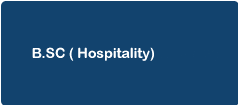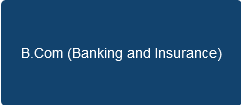Academics
B. SC (Hospitality)
A Bachelor of Science (BSc) in Hospitality typically encompasses a comprehensive study of various aspects of the hospitality industry. This degree program is designed to provide students with a strong foundation in business management principles, combined with specialized knowledge and skills relevant to the hospitality sector. Here’s an overview of what you might expect from a BSc in Hospitality program:
Core Business Courses: Students often study fundamental business disciplines such as accounting, finance, marketing, human resource management, and organizational behavior. These courses provide a solid understanding of the principles and practices essential for managing hospitality enterprises.
Hospitality Management Courses: Specialized courses within the hospitality management field cover topics such as hotel management, restaurant management, event planning, tourism management, and resort management. These courses delve into the unique challenges and dynamics of operating businesses within the hospitality sector.
Hospitality Operations: Students may learn about the day-to-day operations of various hospitality establishments, including front office management, housekeeping operations, food and beverage management, and customer service techniques. Understanding these operational aspects is crucial for effective management within the industry.
Hospitality Industry Trends and Issues: The curriculum may include discussions on current trends, challenges, and emerging issues within the hospitality industry, such as sustainability practices, technological advancements, globalization, and changing consumer preferences.
Internships and Practical Experience: Many BSc in Hospitality programs incorporate internships, co-op placements, or practical training opportunities to provide students with real-world experience in hospitality settings. This hands-on experience allows students to apply theoretical knowledge in practical scenarios and gain valuable industry insights.
Elective Courses: Depending on the program, students may have the opportunity to choose elective courses that align with their interests or career goals. These electives could cover areas such as hospitality law, revenue management, destination marketing, or hospitality entrepreneurship.
Communication and Interpersonal Skills: Given the service-oriented nature of the hospitality industry, communication and interpersonal skills are emphasized throughout the program. Students learn effective communication techniques, conflict resolution strategies, and customer relationship management skills.
Leadership and Strategic Management: Aspiring hospitality professionals are often taught leadership principles and strategic management concepts relevant to the industry. This includes understanding how to lead teams, make strategic decisions, and adapt to changing market conditions.
Upon completion of a BSc in Hospitality, graduates can pursue various career paths within the hospitality sector, including roles in hotel management, restaurant management, event planning, tourism management, resort management, and more. Additionally, some graduates may choose to further their education by pursuing advanced degrees or certifications in specialized areas of hospitality or business management.
B.COM (Accounting & Finance)
A Bachelor of Commerce (B.Com) degree with a specialization in Accounting and Finance is a popular choice for students interested in pursuing careers in financial management, accounting, auditing, banking, and related fields. This program typically offers a blend of accounting principles, financial management concepts, and practical skills relevant to the finance industry.
Here’s an overview of what you might expect to study in a B.Com program with a focus on accounting and finance:
Financial Accounting: This covers the principles and practices of preparing financial statements for external stakeholders, such as investors, creditors, and regulatory authorities.
Managerial Accounting: Focuses on providing information to internal management for decision-making purposes, including budgeting, cost analysis, and performance evaluation.
Auditing: Covers the principles and practices of examining financial records to ensure accuracy, compliance with laws and regulations, and adherence to accounting standards.
Taxation: Provides an understanding of tax laws and regulations, including income tax, corporate tax, sales tax, and international taxation.
Corporate Finance: Explores the financial management of corporations, including capital budgeting, capital structure decisions, dividend policy, and risk management.
Financial Markets and Institutions: Covers the structure and functioning of financial markets, including stocks, bonds, derivatives, and the role of financial institutions such as banks, investment banks, and insurance companies.
Financial Analysis and Reporting: Focuses on analyzing financial statements, assessing financial performance, and preparing various financial reports and forecasts.
Investment Analysis: Covers investment strategies, portfolio management, asset valuation, and risk assessment.
Economics: Provides an understanding of microeconomic and macroeconomic principles, including supply and demand, market structures, economic indicators, and government policies affecting the economy.
Business Law: Covers legal principles relevant to business transactions, contracts, company law, and commercial regulations.
Quantitative Methods: Includes statistical and mathematical techniques used in financial analysis, decision-making, and research.
Ethics in Accounting and Finance: Addresses ethical issues and dilemmas faced by professionals in accounting and finance roles, emphasizing integrity, transparency, and professional conduct.
Throughout the program, students may also have opportunities for internships, projects, and practical experiences to apply their knowledge in real-world settings and develop professional skills.
Upon completion of a B.Com degree with a specialization in Accounting and Finance, graduates can pursue various career paths, including roles as accountants, auditors, financial analysts, tax consultants, investment bankers, financial managers, and corporate treasurers, among others. Additionally, some students may choose to pursue professional certifications such as Chartered Accountant (CA), Certified Public Accountant (CPA), Chartered Financial Analyst (CFA), or Certified Management Accountant (CMA) to further enhance their credentials and career prospects.
B.M.S
Bachelor of Management Studies (BMS) is an undergraduate degree program that delves into the intricacies of management and business administration. It offers a comprehensive curriculum covering essential areas such as accounting, finance, marketing, human resources management, organizational behavior, economics, and strategic management. BMS aims to furnish students with the necessary knowledge, skills, and competencies required to thrive in managerial positions across diverse industries. Some institutions may provide specialized tracks or concentrations within the BMS program to cater to specific interests or career aspirations of students.



